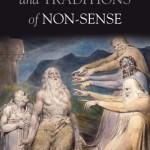We run our website the way we wished the whole internet worked: we provide high quality original content with no ads. We are funded solely by your direct support. Please consider supporting this project.

Enduring an Evil-Infested World (6 Principles) —part one
We live in the midst of a spiritual battlefield where we face evil daily. Yet we are also in the midst of an ambiguity that hinders us from knowing why any given evil occurs as it does. Can we find solace, hope, and courage in the midst of this war, especially when we face meaningless evil? I want to offer six principles, the first three in this post followed by three more in the next.
Principle #1: Fix Your Eyes of Jesus
The book of Hebrews addresses Christians who were facing persecution for their faith. They knew that they would have to suffer for their allegiance to Christ. The author of Hebrews encourages them to “run with perseverance the race that is set before us, looking to Jesus, the pioneer and perfecter of our faith” (Heb 12:1-2).
We won’t have the fortitude to complete this often grueling journey without a focus on Christ. The love Jesus expressed on the cross motivates us and inspires us. The truth of what God is like, as revealed on the cross, reassures us that no matter what we face, God’s love for us is unwavering and unsurpassable.
When people are facing evil they often draw conclusions about the nature of God. This is a mistake. Allowing events to shape our picture of God causes us to mistrust and even resent God. When our eyes are fixed on Jesus, however, we can see that the arbitrary vicissitudes of life reflect the war-torn nature of the cosmos, and we can trust in God’s love for us in the midst of the struggle.
Principle #2: Remember that God is with You
When people go through radical suffering, they often feel alone. The situation that they face drives them into isolation. When we are in the midst of suffering remember that God is with us and is on our side. The NT teaches that our suffering is a participation in Christ’s suffering. We suffer with him (Rom 8:17; Col 1:24). God is with us sharing in our experience, suffering as we are suffering.
This can bring a peace that “surpasses all understanding” (Phil 4:7). This peace is not based on circumstances of life—which is why it “surpasses all understanding.” It is the perfect peace of the eternal Trinity, who is never caught off guard, never anxious, and never overwhelmed.
Principles #3: Yield to His Redemptive Power
Paul teaches: “We know that in all things God works for the good of those who love him who have been called according to his purpose” (Rom 8:28). In all things, whatever or whoever caused them, “God works for the good.” Wherever we find ourselves, and however we got there, we can know that God is already at work to bring good out of it. Those who place their trust in God are called to work with him to bring redemptive meaning out of every event, however tragic or evil it may be. Though our suffering may be the result of a multitude of free decisions of human or demonic agents, the suffering need not be meaningless. In his infinite wisdom God has been anticipating and preparing for this very possibility from the foundation of the world.
With tender creativity we can begin to imagine God bringing redemptive value out of the most tragic and meaningless events. In the midst of all things, God is working with us for our good.
Stay tuned for part two.
Adaptive from Is God to Blame? Pages 152-157
Category: General
Tags: Evil, Natural Evil, Problem of Evil, Satan and the Problem of Evil
Related Reading

If God Can’t Control, How Can I Trust Him?
Question: If God can’t always answer our prayers for healing, for example (and I completely understand why—free will etc), then HOW can he promise to bring good out of the bad things that happen? Surely he is powerless to do that too? And if he can bring good why can’t he therefore heal in the…

Podcast: Does God Actively Discipline Those He Loves?
Greg on God’s role in suffering. http://traffic.libsyn.com/askgregboyd/Episode_0272.mp3

Romans 8:28: What Does It Mean?
The Bible is very clear that God has nothing to do with evil. There is “no darkness” in God. (I Jn 1:5). Far from intentionally bringing about evil, God’s “eyes are too pure to look on evil” (Heb. 1:13). All evil, therefore, must be ultimately traced back to decisions made by free agents other than…

God of Sense and Traditions of Non-Sense
As the title suggests, in his book, God’s Problem: How The Bible Fails to Answer Our Most Important Question – Why We Suffer, Bart Ehrman argues that the Bible has nothing compelling to say about the problem of evil. Well, I just put down a beautifully written four-hundred and fifty page book that compellingly argues…

6 Things the Church Fathers Can Teach Us about Spiritual Warfare
Image by Christina Saint Marche via Flickr Unlike our thinking today about the source of good and evil in the world, the early church fathers, including Irenaus, Athenagorus, Origen, and others before Augustine, possessed a warfare worldview. Here are 6 ideas that are common in their writings: The Reality of the “World-in-Between” The church fathers assumed…

Is God Good?
Andrew Stawarz via Compfight This reflection by David D. Flowers seemed like a good addition to Greg’s recent blogs on free will. Here David talks about the problem of evil and how it is that we can call God “good” in light of a world full of evil. He even quotes Greg extensively. From the…
